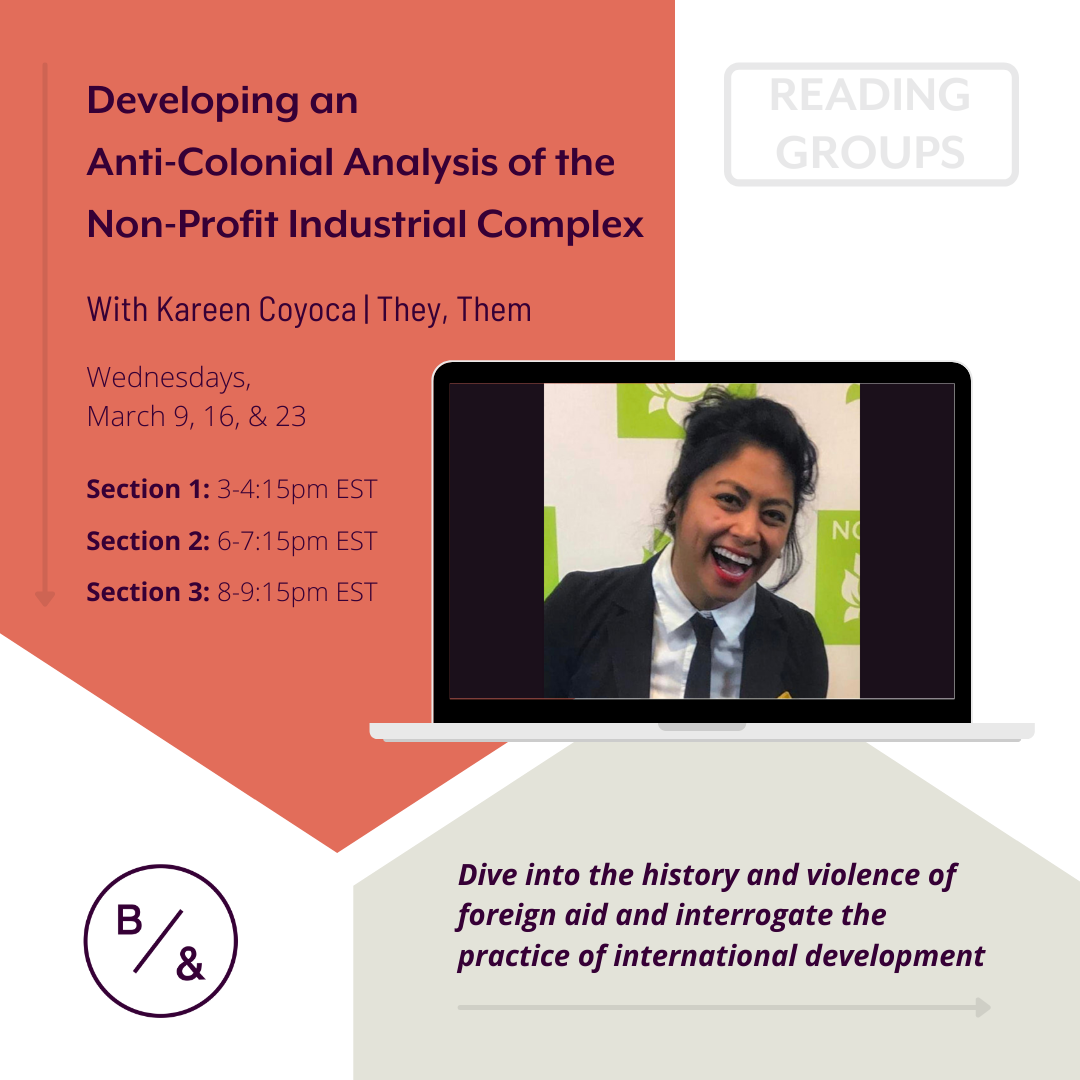Dismantling the Non-Profit Industrial Complex
Join us to explore how the non-profit sector and philanthropy maintain the status quo, the roles individuals and organizations play in upholding oppression and how to resist, and what moving beyond the non-profit industrial complex looks like.













